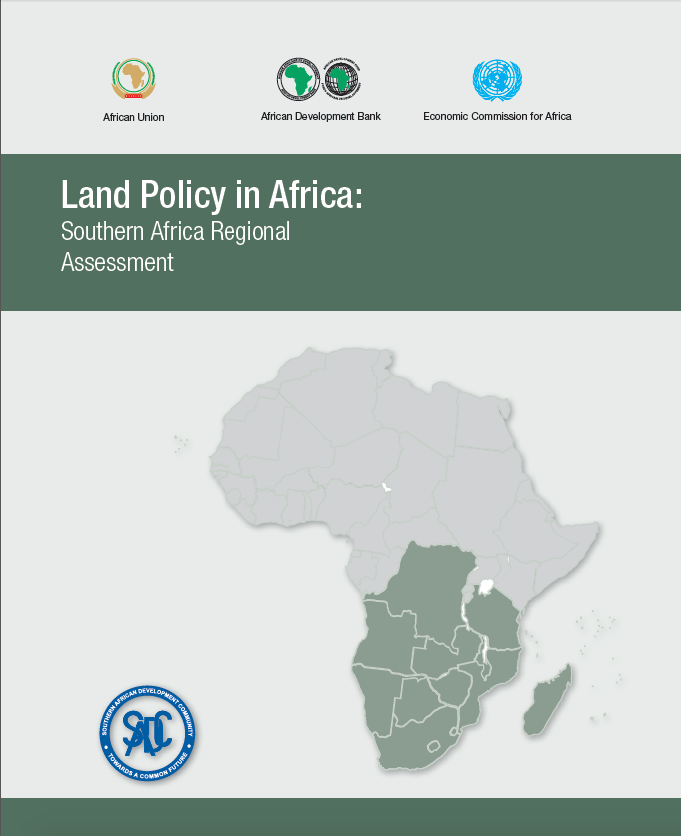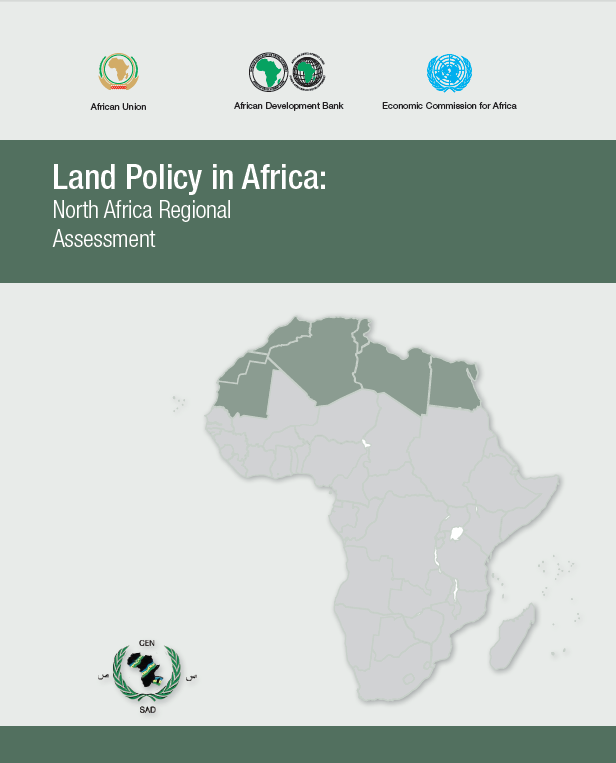Location
The African Land Policy Centre, formerly called the Land Policy Initiative (LPI), is a joint programme of the tripartite consortium consisting of the African Union Commission (AUC), the African Development Bank (AfDB) and United Nations Economic Commission for Africa (ECA). Its purpose is to enable the use of land to lend impetus to the process of African development. The programme is governed by a Steering Committee that meets periodically, while a joint secretariat implements day to day activities. The secretariat is assisted by an African Taskforce on Land.
After having developed the Framework and Guidelines (F&G) on land policy in Africa, and received the mandate from the African Union (AU) to use it in support of national and regional land policy processes, the LPI is now moving towards assisting AU Member States in developing or reviewing their land policies as well as in implementing and evaluating these policies.
Vision
A peaceful and prosperous Africa realized through equitable access, efficient and sustainable utilization of land.
Mission
To ensure all land users have equitable access to land and security of all bundles of land rights, by facilitating effective partnerships, dialogue and capacity building for participatory and consultative land policy formulation and implementation, as well as efficient and transparent land administration in both customary and statutory jurisdictions.
Goal
To assist Member States in the implementation of the declaration on land issues and challenges in Africa in accordance with the Framework and Guidelines on land policy in Africa in order to achieve socio-economic development, peace and security, and environmental sustainability.
Current targets of the initiative include:
Twenty Member States developing land policies and adopting implementation tools that enhance women’s secure access to land; and recognize the legitimacy of Africa’s customary based land rights and institutions by 2020
Ten Member States putting in place transparent, efficient and cost-effective Land administration systems which are reflective of Africa’s unique realities by 2020
Members:
Resources
Displaying 21 - 25 of 35Land Policy in Africa: Southern Africa Regional Assessment
Southern Africa is one of the most well endowed regions in the continent in terms of mineral and natural resources. However, the region is facing serious environmental challenges such as land degradation, deforestation and water stress in specific areas.
Land Policy in Africa: Southern Africa Regional Assessment
Southern Africa is one of the most well endowed regions in the continent in terms of mineral and natural resources. However, the region is facing serious environmental challenges such as land degradation, deforestation and water stress in specific areas.
Land Policy in Africa: North Africa Regional Assessment
The countries in North Africa share an arid and semi-arid environment with high diversity: mountainous areas run alongside maritime areas and desert. The population of the region was estimated at 160 million people in 2005 and is expected to be more than 270 million in 2030. Most of the population will live in urban areas. Currently, urban dwellers in North Africa represent more than 50% of the population and are expected to be more than 60% by 2030. However, the urban system in North Africa is suffering urban primacy.
Land Policy in Africa: North Africa Regional Assessment
The countries in North Africa share an arid and semi-arid environment with high diversity: mountainous areas run alongside maritime areas and desert. The population of the region was estimated at 160 million people in 2005 and is expected to be more than 270 million in 2030. Most of the population will live in urban areas. Currently, urban dwellers in North Africa represent more than 50% of the population and are expected to be more than 60% by 2030. However, the urban system in North Africa is suffering urban primacy.
Land Policy in Africa: Eastern Africa Regional Assessment
The African Union Commission (AUC) and African Heads of State and Government are committed to providing a conducive environment for economic growth, poverty reduction and equitable sustainable development. In this context, the quality of governance of land and natural resources is an important factor. Accordingly, better performance of land policies and institutions is required to deliver development goals. Land reforms must equitably address the needs of all land users, including smallholder farmers, the private sector, the urban poor and slum dwellers.




